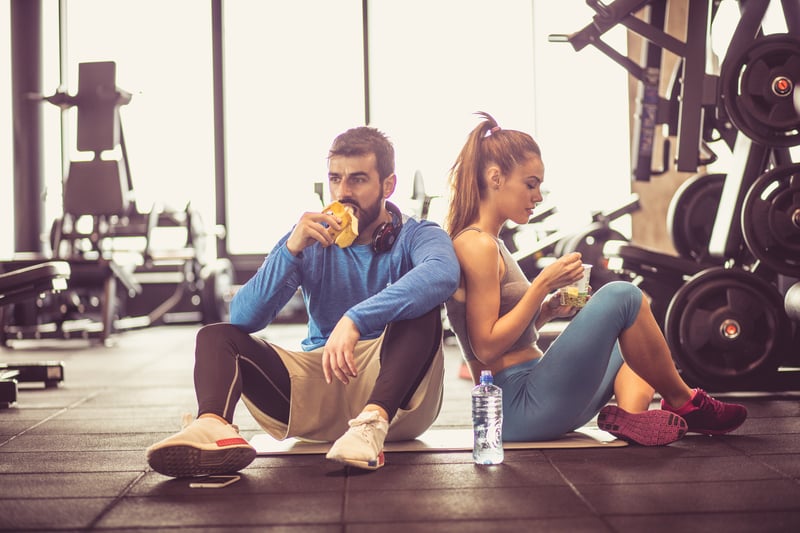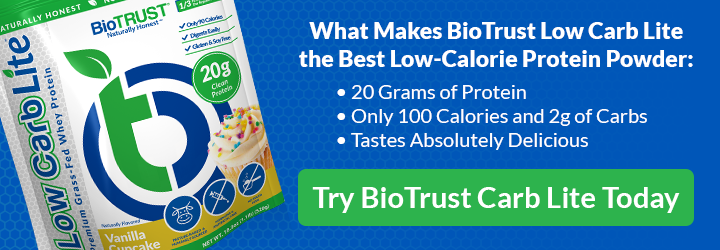Here’s What You Should Eat Before & After a Workout

What you eat matters, and what you eat before, after, and even during a workout can make or break it. Your pre- and post-nutrition needs to be on point if you plan on getting the most out of the hard work you put into the gym.
You’ve likely heard the term “food is fuel,” and nowhere is that more true than in the fitness arena. Yes, you want to properly power your exercise program with the right foods, and no, you don’t want to slow yourself down with the wrong foods. Should you eat differently based on your goals? And, should you be taking any type of sustenance in while you’re working out as well?
So many questions, and we have the answers for you…
What to Eat Before a Workout
It’s important to eat before your workout and to eat correctly to maximize your efforts in the gym. And yes, you will want to eat according to your goals as well as whether that be pre-, intra-, or post-nutrition because the way you fuel your body prior to exercise helps determine how you feel while working out and how much you are able to get out of your exercise program.
There are general rules of thumb you can follow for great pre-workout nutrition if you don’t want to get too complicated:
- Drink about 2 – 3 cups of water in the 1 – 3 hours prior to exercise.
- Eat 1 – 3 hours prior to your workout.
- Don’t eat fatty or greasy foods that will only weigh you down.
- Don’t consume high-sugar items pre-workout as it can lead to a crash in energy levels.
- Eat foods that are easy to digest.
- Limit fiber (as it slows digestion).
- Don’t eat foods that bloat you as they will make your workout uncomfortable.
- Keep volume low—you don’t want food that is too filling.
- Include protein.
- Avoid diet soda and carbonated drinks, which can lead to bloating or heartburn.
- Limit smoothie size as too much volume in your stomach can interfere with your workout.
- Limit caffeine before bed, but if your workout is hours away from bedtime, using caffeine in limited quantities can help you power through (and burn additional calories).
- Eat potassium before your workout.
If it’s right before your workout, fruit like an orange, apple, or banana will provide fast-digesting carbs and pump up your energy levels without a sugar crash.
If you are trying to lose weight, you may consider not eating at all pre-workout as fasting can help your body move straight to your body fat stores for energy, instead of first having to burn through the glycogen from the food you ate.
If you are trying to put on muscle, consider adding a small amount of moderate carbs, like oatmeal or cream of rice, about an hour and a half prior to your workout. These will help give you steady energy throughout the workout.
What to Eat and Drink During a Workout
While you may never have considered fueling your body during your workout, it’s an important period of time for your body, and you still need beneficial nutrients and hydration.
- Consume fluids to keep you hydrated—try to get in about a cup of water about every 20 minutes. This can consist of water, a sports drink, or your own healthy concoction.
- You can add electrolytes (minerals, such as sodium, potassium, and magnesium) to your water to help maintain fluid balance, which is super important, especially when you’re sweating or consuming large amounts of liquids.
If you are participating in an endurance sport that requires a lot of energy (like a marathon, for example), you might want to add some quick carbs like honey and a banana for potassium along the way. (Alternatively, you could get a similar formula in various sports drinks.)
If you are trying to lose weight, stick with water or drinks extremely low in sugar.
If you are trying to put on muscle, try adding some carbs for energy in the form of highly branched cyclic dextrins (easily digestible sugars), some branched-chain amino acids, and maybe a small amount of protein.
What to Eat After a Workout
And, last but certainly not least, you’ll want to fuel up properly after a workout, too.
- Drink 2 – 3 cups of water for the next few hours after a workout as well to replenish the fluids lost by sweating, more if you had a really tough workout or were in extreme temperatures.
- Add fiber to your meal.
- Add antioxidants after your workout to aid in recovery from the workout you just put your body through.
- After your workout, it’s time to eat slow-digesting carbs (like whole grains such as oats or farro, vegetables, or beans).
- Try to eat within an hour of your completed workout.
- Now is definitely not the time to skip meals. Your body is ready to take in nutrients at this point, so provide it with some healthy building blocks.
- Stay away from processed foods and even nutrition bars if possible and instead opt for real whole healthy foods.
If you are trying to lose weight, consume a meal that’s high protein, moderate carb, and lower in fats.
If you are trying to build muscle, eating protein along with a complex carb will help to replenish and repair your muscle tissue for growth.
It’s important to remember that nutrition is an all-day event, and the better you can stay on point with your nutrition throughout the day, the better your workouts will be as well.







